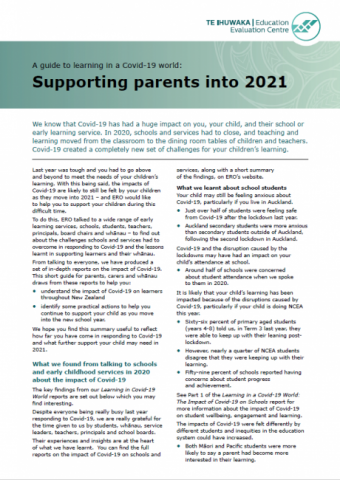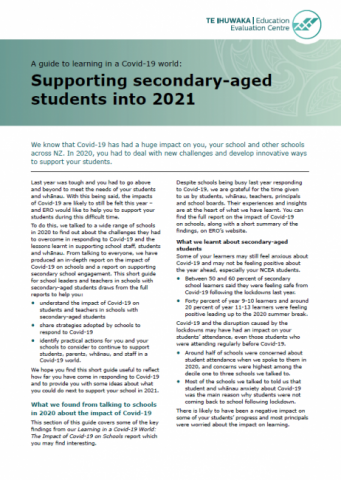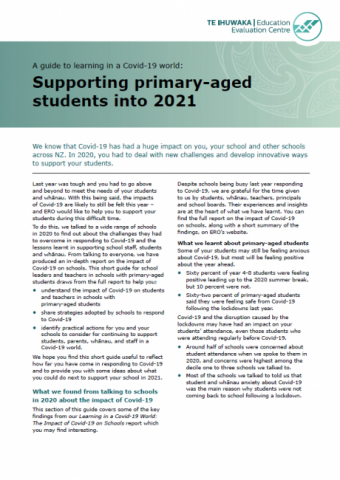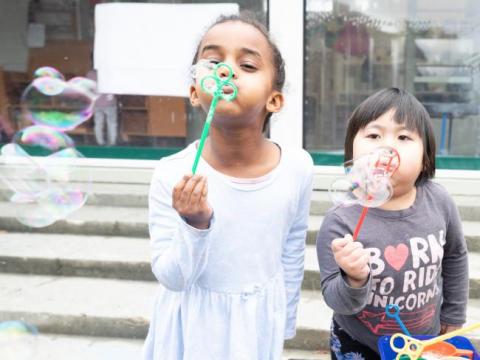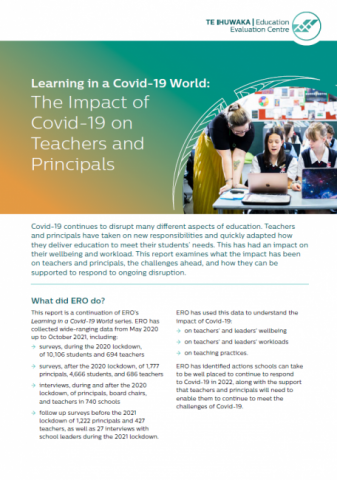Exploring Collaboration in Action: Kahukura Community of Practice
Published: 10 May 2021
ERO was approached by principals from Kahukura to document and evaluate their community of practice in Christchurch. This report identifies what is working well for this community of practice, areas where they might consider further enhancements, and lessons and insights into practices which could be shared with others.
- Audience:
- Academics
- Early learning
- Education
- Schools
- Content type:
- Research
- Topics:
- Collaboration
- Decision making
- English-medium
- Evaluation
- Guidance
- Improvement
- Intermediate
- Internal evaluation
- Knowledge building
- Primary
- Relationships
- School leaders
- Schools
- Secondary
- Students
- Teachers | Kaiako
- Teaching
- Te Ihuwaka | Education Evaluation Centre

